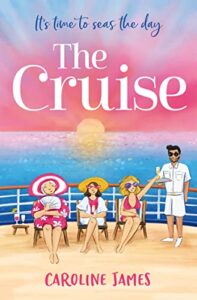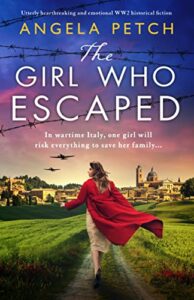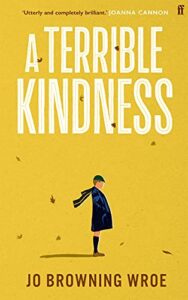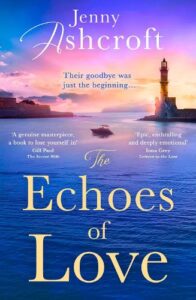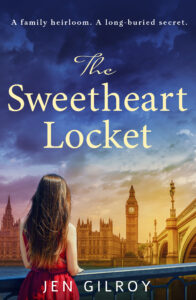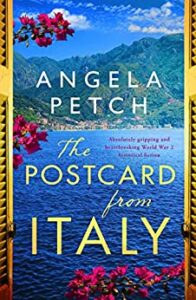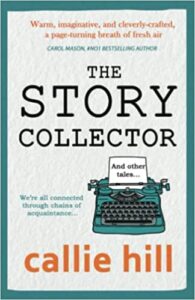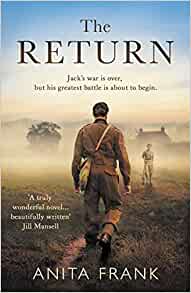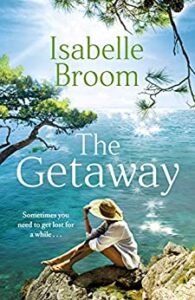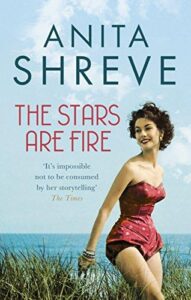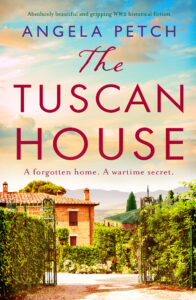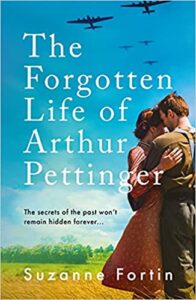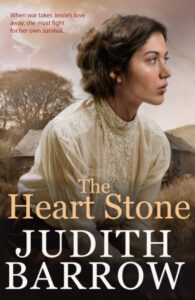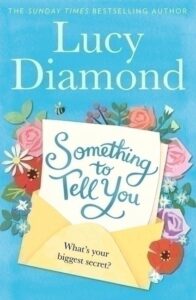I felt a weight of responsibility to get my research right for The Girl who Escaped. A main male protagonist is based on my Italian grandfather-in-law and I wanted to respect Luigi’s courage, as well as accurately represent the plight of Jews in Italy.
The first book I consulted was: It happened in Italy, written by an Italo-American lady. Elizabeth Bettina wrote of an internment camp for Jews near her grandparents’ village of Campagna. They’d been treated with kindness and respect. This was a revelation. I had only come across stories of gruesome concentration camps. Did camps like Campagna exist in Tuscany?
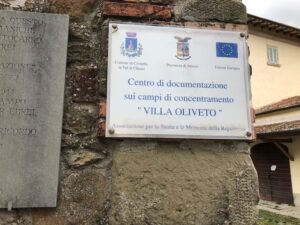 I found a camp called Villa Oliveto where archives for internment camps were stored. Brilliant! The hunt was on! I found accounts and photos of this place in the 1940s.
I found a camp called Villa Oliveto where archives for internment camps were stored. Brilliant! The hunt was on! I found accounts and photos of this place in the 1940s.
We travelled to the picturesque location set in olive groves near Civitella in Val di Chiana, but the villa, a former orphanage, was closed and archives no longer stored there.
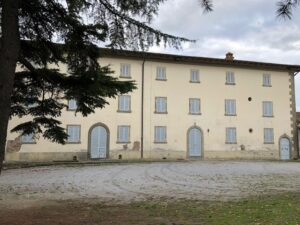 All was not lost, however. I wandered around the building, taking photographs and notes. Then, I came across a puzzling, fading plaque, which told me the villa had once housed British Jews. Extremely puzzled, I asked a local woman who was walking past. But she had no idea. I speak fluent Italian and this helps when researching.
All was not lost, however. I wandered around the building, taking photographs and notes. Then, I came across a puzzling, fading plaque, which told me the villa had once housed British Jews. Extremely puzzled, I asked a local woman who was walking past. But she had no idea. I speak fluent Italian and this helps when researching.
I enjoy a research puzzle and when I discovered the explanation later, it inspired a new character. Bear with me…
A young woman called Shira is a Cyreneican Jew from eastern Libya. (A former Italian colony). After Italy joined the Germans in 1940, many Libyan Jews were sent to concentration camps where they were treated abominably. Jews lost trust in the Italian government, and began to support the British. The British had first conquered Cyrenaica in December 1940 and abolished Mussolini’s racial laws. Many Jewish men joined the British army and were granted British citizenship. Here was the link I needed.
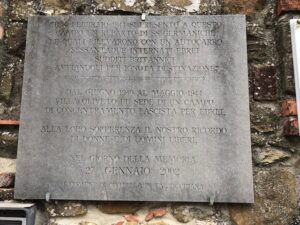 On April 3rd 1941, Italian and German forces pushed British forces from Benghazi. Jews were arrested by the Italians, especially those who had allied themselves with the enemy, and were sent to the notorious Giado camp. Some Libyan Jews, however, were sent back to Italian camps. I’ve never found the exact reason, but have allowed myself artistic license through detective work. In a brilliant Italian book covering the persecution of Jews in Italy I found possible explanations of why Shira and other Libyan Jews might have landed in Italy, instead of elsewhere.
On April 3rd 1941, Italian and German forces pushed British forces from Benghazi. Jews were arrested by the Italians, especially those who had allied themselves with the enemy, and were sent to the notorious Giado camp. Some Libyan Jews, however, were sent back to Italian camps. I’ve never found the exact reason, but have allowed myself artistic license through detective work. In a brilliant Italian book covering the persecution of Jews in Italy I found possible explanations of why Shira and other Libyan Jews might have landed in Italy, instead of elsewhere.
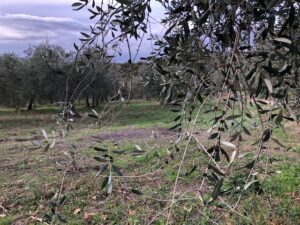 The Italian government knew about extermination of Jews already by the second half of 1942 – when they’d heard of massacres of Jews in Russia, from word sent home by Italian officers operating on the Eastern front. And foreign Jews who had arrived in Italy, including Hersz Kawa from Siedlce, Poland, had also talked of atrocious treatment too. He and two others had managed to escape in an empty wagon of a train bound for Italy. They spoke to Italian guards who made sure they were sent to an Italian camp, rather than German. Similar events happened in Vichy France, when French Jews escaped to Italy because they felt they would be better treated.
The Italian government knew about extermination of Jews already by the second half of 1942 – when they’d heard of massacres of Jews in Russia, from word sent home by Italian officers operating on the Eastern front. And foreign Jews who had arrived in Italy, including Hersz Kawa from Siedlce, Poland, had also talked of atrocious treatment too. He and two others had managed to escape in an empty wagon of a train bound for Italy. They spoke to Italian guards who made sure they were sent to an Italian camp, rather than German. Similar events happened in Vichy France, when French Jews escaped to Italy because they felt they would be better treated.
I’m hoping that the same thing might have happened to those British Libyan Jews mentioned on the plaque. Saved by Italian soldiers acting with conscience.
The Girl Who Escaped: https://geni.us/B0BYC1V9NHcover

